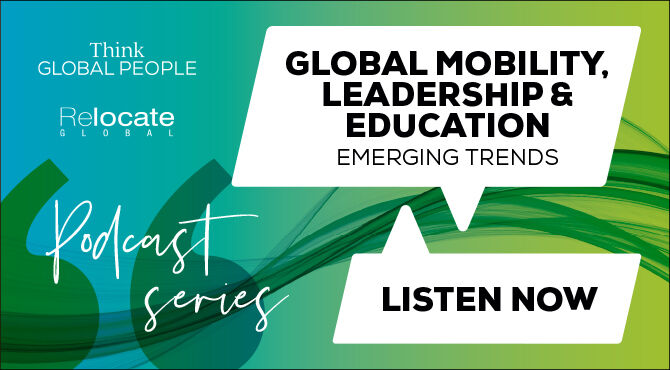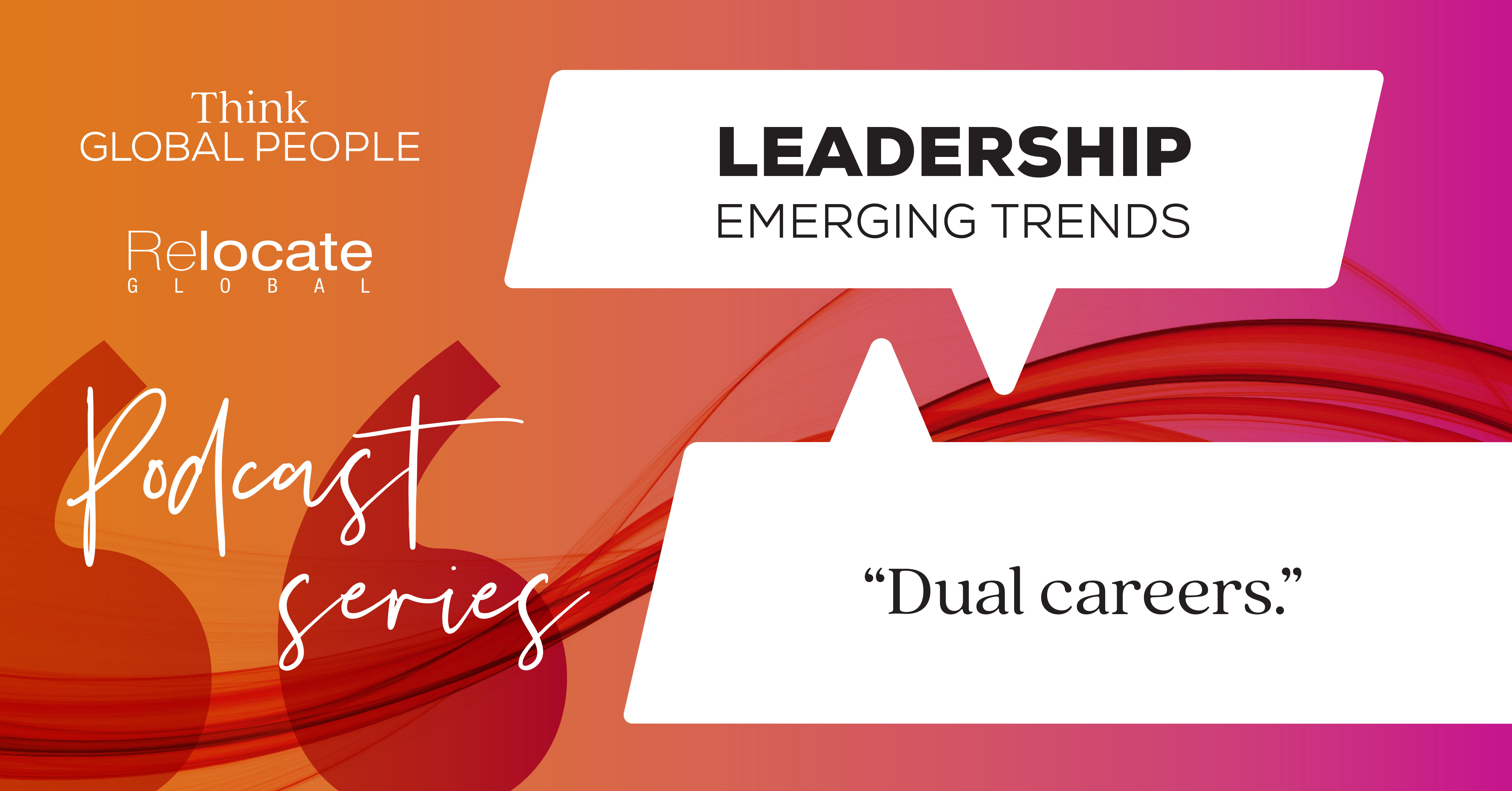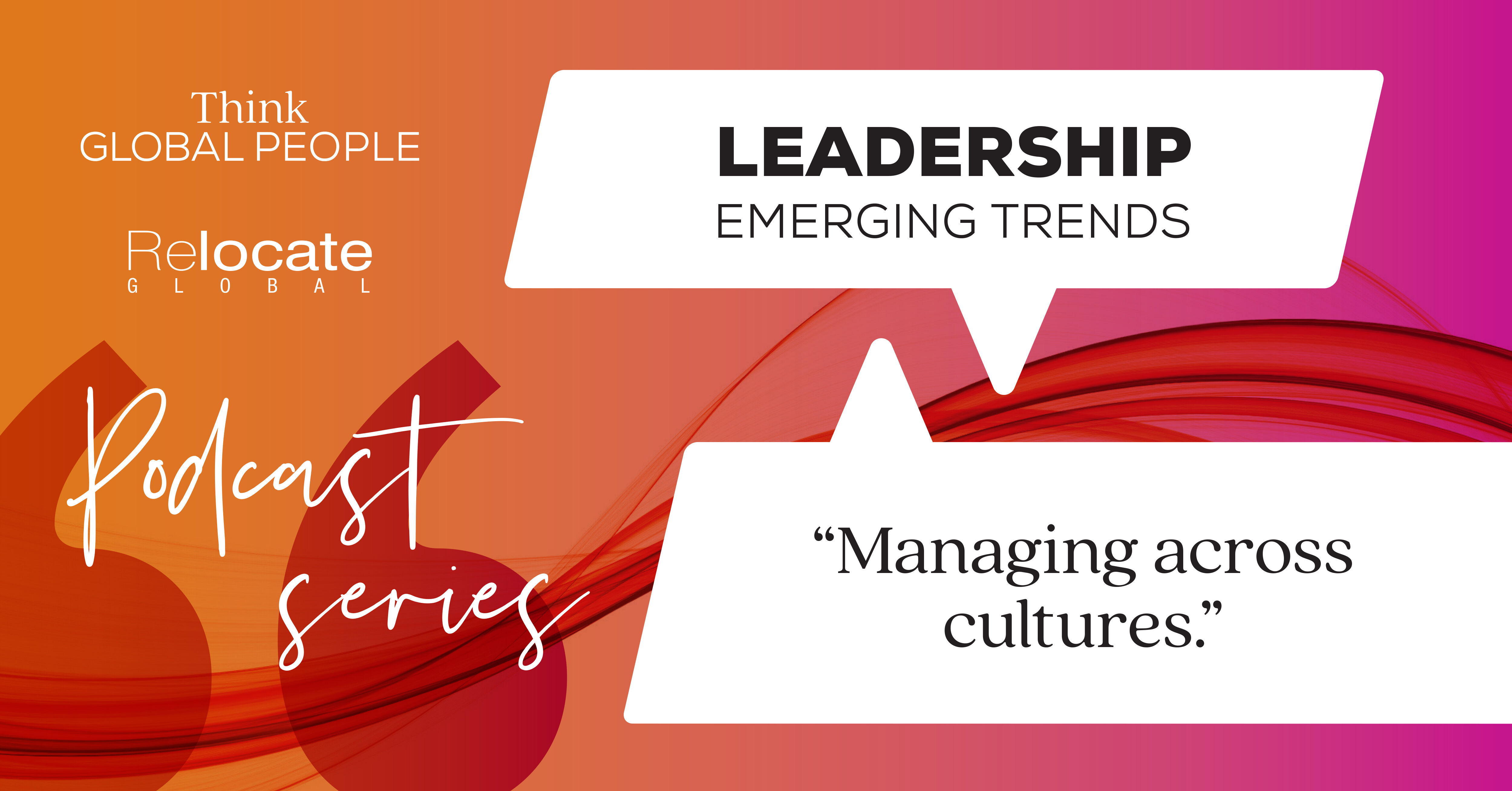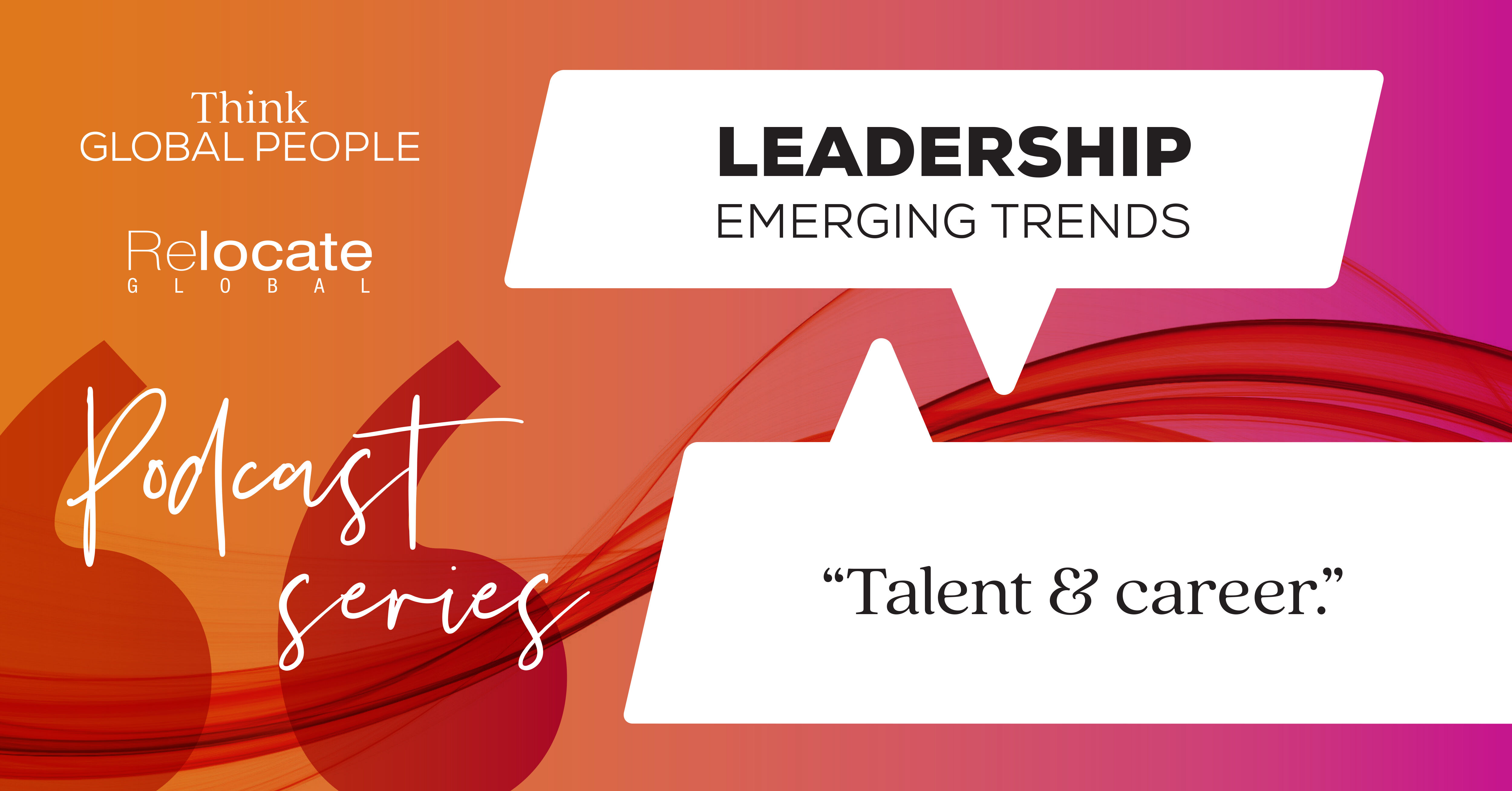New release Podcasts
Enjoy new Global Mobility, Global Leadership and Global Education podcasts to inform international employers, relocation professionals and the employees embarking on international assignments and choosing schools.
Choose from our wide array of podcast topics
Listen to all our podcast episodes: here on thinkglobalpeople.com or here on Spotify.
Global Mobility
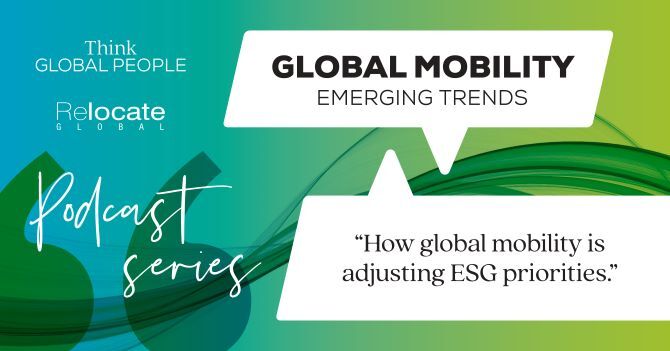
Episode 1: How global mobility is adjusting to ESG priorities
What are the challenges that organisations face in meeting ESG targets? Should global mobility companies change their approach to the types of assignments undertaken in order to reduce carbon emissions, and how can this be done? Journalist Marianne Curphey and Dr Susan Shortland, Senior Lecturer in Human Resources Management (HRM) at the University of Westminster, discuss the policy adjustments that need to be made, how to overcome challenges in terms of change of organisational culture and employee expectations, and why governance should be a priority for leaders in managing risk, retaining talent and driving purpose. They also look at the rise of AI and its implications for global mobility, and why managers ignore it at their peril.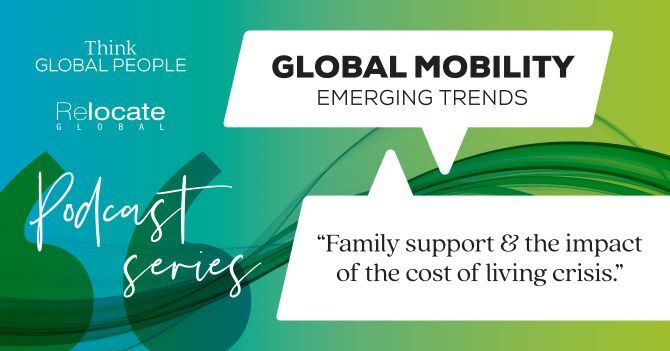
Episode 2: Family support and the impact of the cost of living crisis
How can the global mobility industry continue to offer support and add value at a time of rapidly rising prices and inflation? Global mobility teams are under great pressure to support assignees in the current challenging financial environment and there are difficult messages to convey to clients. Fiona Murchie, Founder & Managing Editor, Relocate Global and Think Global People joins Dr Susan Shortland, Senior Lecturer in Human Resources Management (HRM) at the University of Westminster, to discuss how providing employee support will reap dividends in terms of reducing employee and family stress, improving wellbeing and ensuring the attraction, deployment and retention of the very best talent.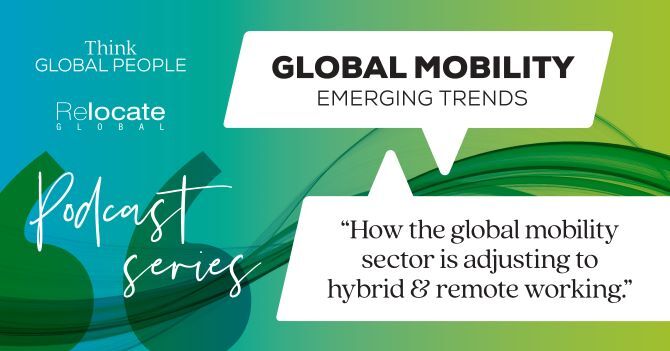
Episode 3: How the global mobility sector is adjusting to hybrid & remote working
Global mobility policy design is going through a period of rapid change – how are companies responding to this and are they responding in the right way? Despite the challenges they present in terms of tax and employment legislation, opportunities for travel and hybrid working can be beneficial if used correctly to promote inclusivity, talent acquisition and retention. In this episode Fiona Murchie, Founder & Managing Editor, Relocate Global and Think Global People joins Dr Susan Shortland, Senior Lecturer in Human Resources Management (HRM) at the University of Westminster, and journalist Marianne Curphey for a discussion on how hybrid working has fundamentally changed the global mobility industry. They look at whether a radical redesign of global mobility policy is needed and discuss ways to initiate a more flexible approach to existing policy content to meet employee expectations.Global Leadership
Episode 4: Dual careers
Why supporting partners and spouses as well as the assignee can lead to better outcomes, more successful assignments and greater productivity and wellbeingResearch highlights that dual careers are a major barrier to employees accepting an international position. There is a high risk of assignment failure if one party in a dual career partnership is unhappy and unfulfilled. Journalist Marianne Curphey and Dr Susan Shortland, Senior Lecturer in Human Resources Management (HRM) at the University of Westminster, discuss what we mean by dual careers in a mobility context and the benefits of supporting the partner or spouse as well as the assignee. They examine the risks to the employer of a failed assignment, and at what makes a successful dual relocation, weighing up how to provide the most cost-effective and useful support.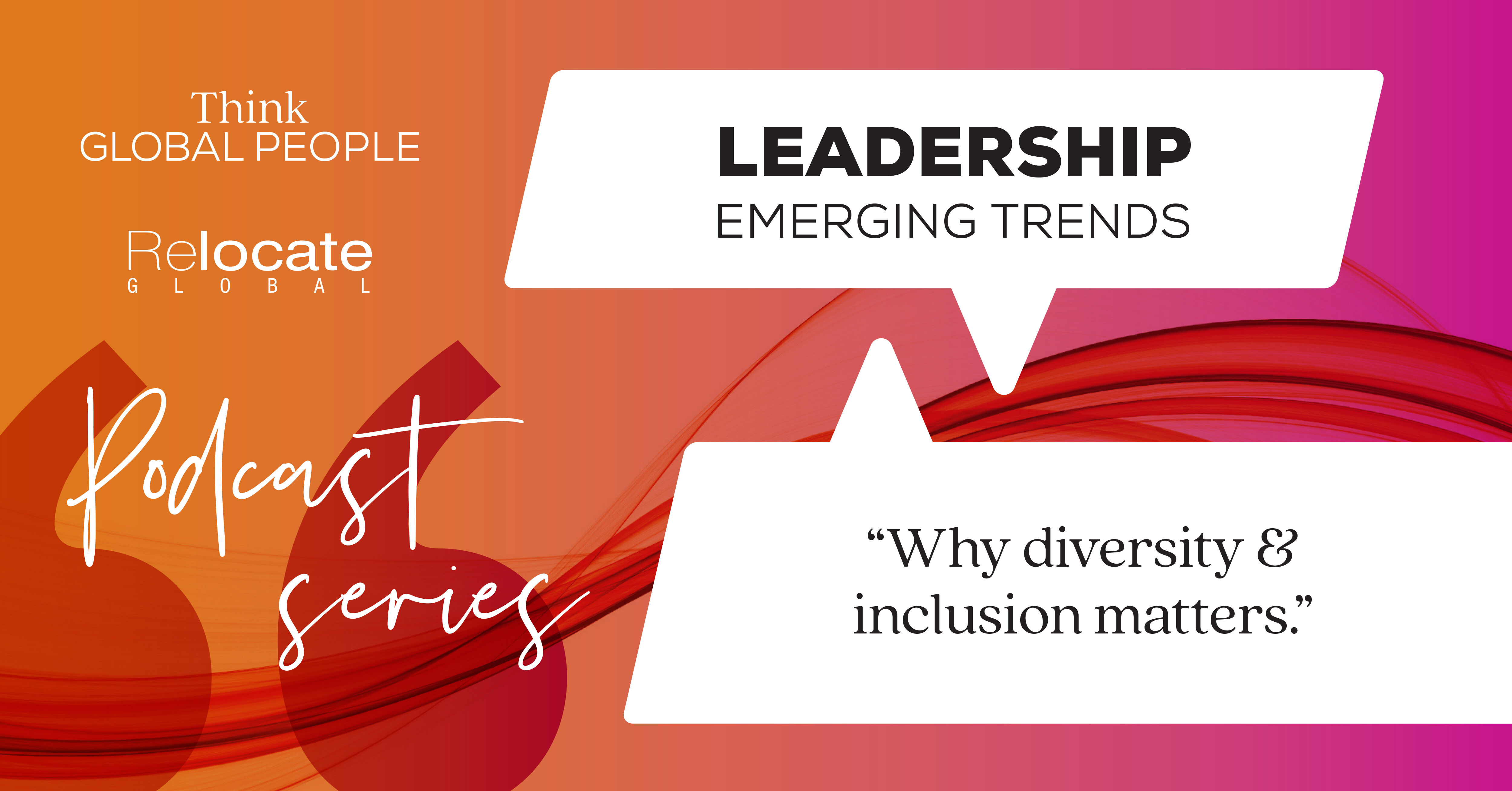
Episode 5: Why diversity & inclusion matters
Changing culture can be challenging but there are strong social, human capital and business case arguments for incorporating and improving diversity. However, culture change takes time and can be challenging. Journalist Marianne Curphey is joined by Dr Susan Shortland, Senior Lecturer in Human Resources Management (HRM) at the University of Westminster, to discuss the legislative requirements and law around diversity, the social arguments for diversifying a workforce, and the positive implications for human capital. From a business case perspective, they look at how diversity can contribute to market competitiveness and branding.Episode 6: Managing across cultures
How much support do employees need when on assignment in a different culture? What can managers and leaders do to support them and ensure that the assignment is a great experience for the individual and their family? Marianne Curphey is joined by Dr Susan Shortland, Senior Lecturer in Human Resources Management (HRM) at the University of Westminster, to discuss the influence of societal cultures on working practices and how to prepare assignees to ensure the best possible transition. Marianne and Susan talk about how to support employees in cultural training, how to mitigate “culture shock”, how to retain staff when they return from an overseas posting, and how to provide new career opportunities, support around returning home and have the right settling-in policies in place to retain key talent.Episode 7: Talent and career
What do we mean by talent, and why do employers need to adopt a more holistic approach to supporting career development, mentoring and promotion among their staff? Journalist Marianne Curphey is joined by Dr Susan Shortland, Senior Lecturer in Human Resources Management (HRM) at the University of Westminster, to address leadership strategy and the challenges that managers face in developing policies and guidelines around talent and career management. They discuss why organisations need to view career progression through the lens of the employee’s personal and professional development, as well as the company’s own business strategy. They highlight the need for planning to secure a future talent pipeline, how to ensure more women have the opportunity to progress to senior leadership, and how to ensure there is equity when deciding who to send on assignment.Download our Global Mobility and Global Leadership Mini-Factsheets

©2024 Re:locate magazine, published by Profile Locations, Spray Hill, Hastings Road, Lamberhurst, Kent TN3 8JB. All rights reserved. This publication (or any part thereof) may not be reproduced in any form without the prior written permission of Profile Locations. Profile Locations accepts no liability for the accuracy of the contents or any opinions expressed herein.




